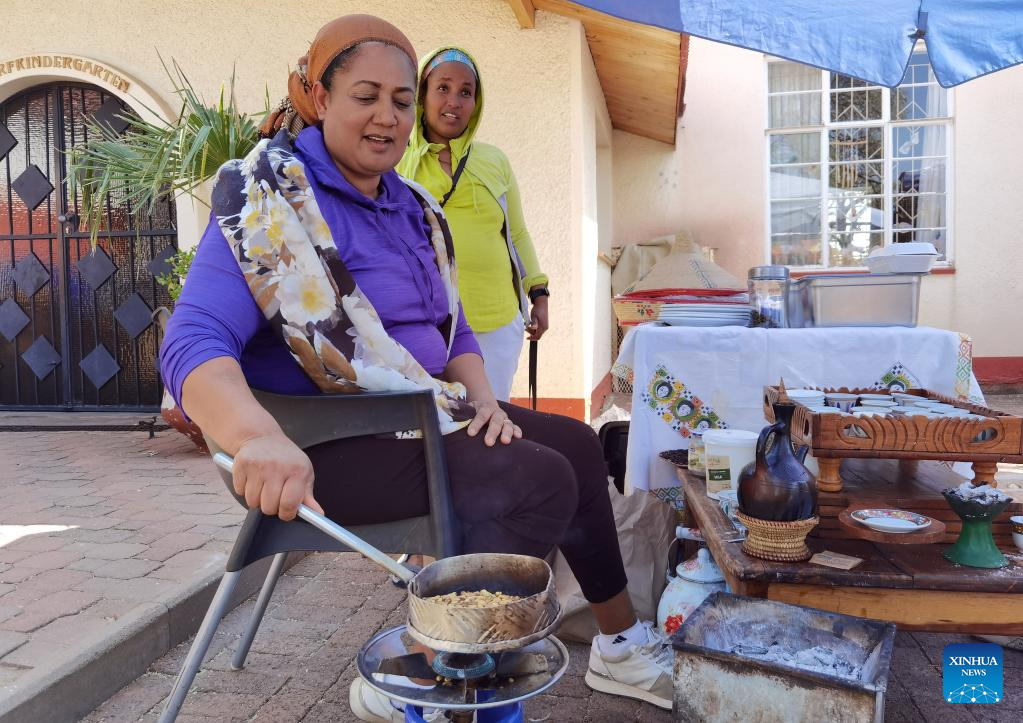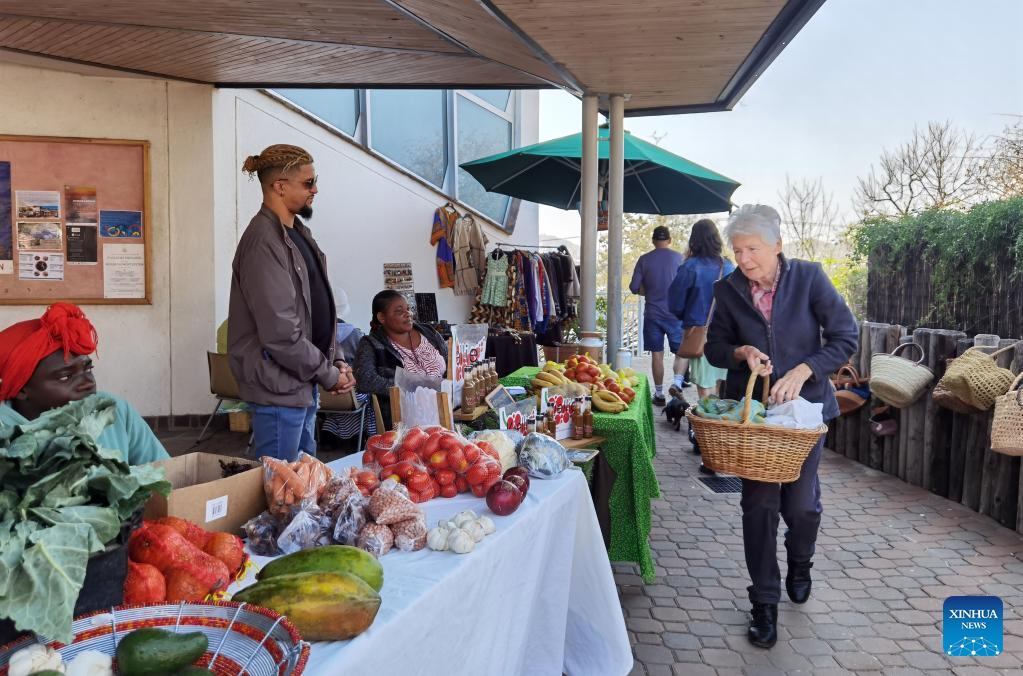
An Ethiopian woman roasts coffee beans at the Green Market in Windhoek, Namibia, on Aug. 17, 2024. (Photo by Ndalimpinga Iita/Xinhua)
WINDHOEK, Aug. 17 (Xinhua) -- Nestled on a bustling street in Windhoek, Namibia's capital, the Green Market draws crowds every Saturday. This vibrant marketplace is more than just a gathering spot for friends and families; it also provides a crucial platform for farmers to sell their natural products.
Established in 2004 by members of the Waldorf School to replicate the success of a similar market in South Africa, the Green Market has since become a dynamic hub for local entrepreneurship and a catalyst for agricultural trade.
Operating every Saturday, the Green Market offers a diverse range of natural farm produce, fashion, cultural items, arts, and both international and local cuisine. Its unique selling point is its consistent weekly operation, which distinguishes it from other markets.
Initially managed by a group of school parents, the market is now overseen by a team of five trustees. "We aim to promote further eco-friendly practices that have a positive impact on the environment," said Bettina Meierhofer, who has managed the market for the past seven years with the support of the trustee team.
The market has expanded significantly from its beginnings with just four stalls to over 40 vendors today. Stall fees start at 100 Namibian dollars (about 5.6 U.S. dollars), with costs varying based on the size of the stall and the nature of the business and products. In the past, the Green Market used to take a commission from the profits earned by exhibitors on Saturdays.
Occasionally, the market provides free trade space for startups as part of the commitment to reinvest in the community and address market access gaps, said Meierhofer.
Nearly 20 years on, exhibitors like Angela Iilonga, who specializes in textile and fashion design, have attributed business growth to the Green Market. Iilonga was one of the first four entrepreneurs to exhibit products at the Green Market in 2004.
"Before this, I struggled to find a suitable place to sell my products, including accessories and other wildlife-themed items," she said. "The market allowed me to reach my target clientele, including tourists. I never left," Iilonga added.
The market serves not only as a trading space. "It also serves as a platform for exchanging ideas, networking, and learning best practices from fellow vendors," she said.
In addition to its diverse range of products, the market also features a range of international cuisines and products, adding to its diversity, said Meierhofer.
To sustain and grow the market, the team employs robust marketing strategies on social media and other platforms to attract more exhibitors and visitors. They also apply strict criteria to ensure vendor products meet high standards and satisfy a growing clientele.
"We don't accept any products; we assess if it is within the standards, ensuring that their products meet the demand of a growing clientele," said Meierhofer.
Looking ahead, the Green Market envisions becoming even more eco-friendly, with plans to eliminate plastic use and increase opportunities for farmers and other vendors.
"Our vision is to promote healthier food production and contribute to economic growth and social well-being," said Meierhofer.
Carl Schlettwein, Namibia's minister of Agriculture, Water, and Land Reform, highlighted the importance of such markets in connecting small and medium enterprises with traders and ventures in the value chain.
The agricultural sector in Namibia is vital, serving 70 percent of the country's population and contributing significantly to the local economy, according to the minister. ■

People visit the Green Market in Windhoek, Namibia, on Aug. 17, 2024. (Photo by Ndalimpinga Iita/Xinhua)
